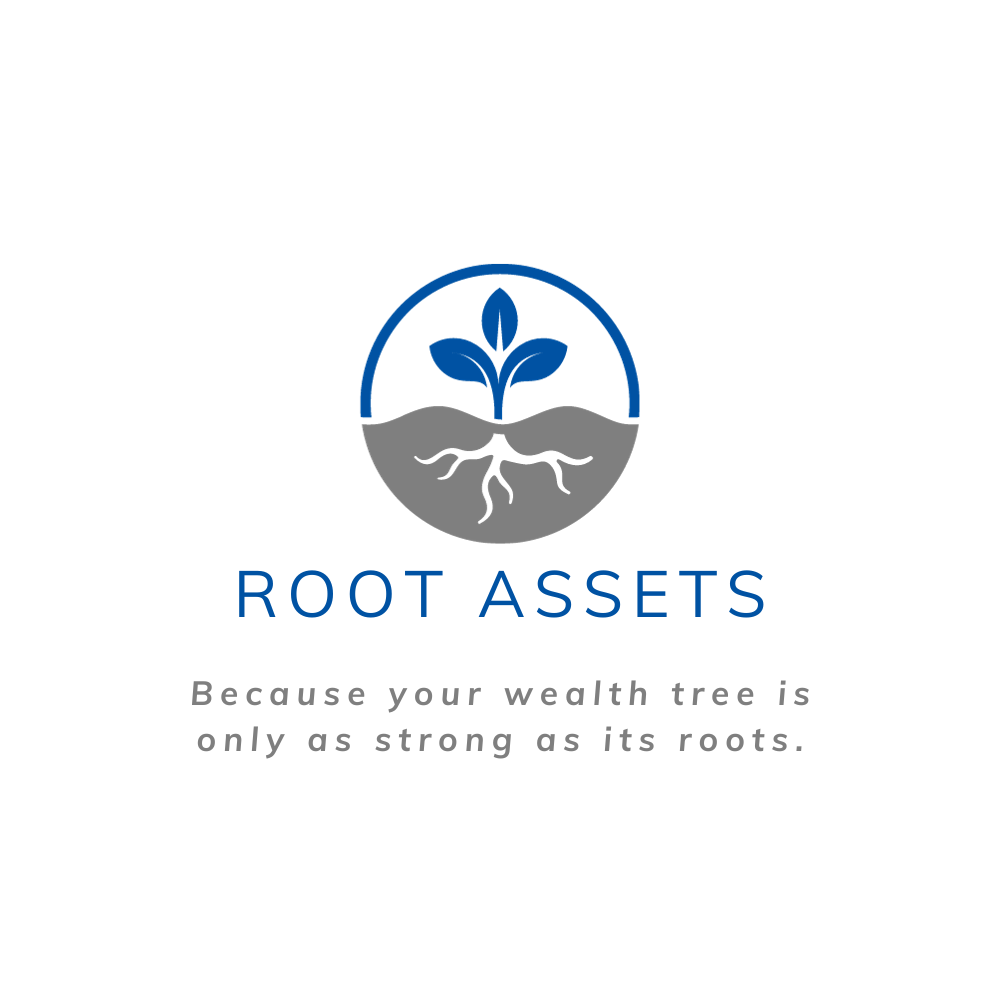We use cookies to improve your experience on our site. By using our site, you consent to the use of cookies. Rejecting cookies will prevent non-essential cookies from loading.
Learn more about personal and business finance by reading any one of our insightful blogs.

The Hidden Cost of Taxable Accounts: How CDs and Money Market Accounts Can Stifle Your Wealth Growth
The Hidden Cost of Taxable Accounts: How CDs and Money Market Accounts Can Stifle Your Wealth Growth
When it comes to investing, taxable accounts like savings accounts, certificates of deposit (CDs) and money market accounts often get a gold star for safety and reliability. They’re the financial equivalent of a cozy blanket—low-risk, predictable, and easy to understand. But here’s the catch: that safety comes with a sneaky downside that can severely hamper the growth of your money. What’s the culprit? Taxes.
Every time your savings accounts, CD or money market account earns a bit of interest, the IRS swoops in to claim its share. That annual tax bill might not seem like much at first glance, but over time, it chips away at your returns, slows down your wealth-building momentum, and leaves you with less than you’d hoped. Let’s dive into why taxable accounts can be such a drag on your portfolio—and what you can do about it.
The Tax Trap: How It Eats Into Your Earnings
In a taxable account, any interest, dividends, or capital gains you earn are subject to taxes each year. For savings accounts, CDs and money market accounts, this usually means the interest you earn gets hit with income tax. And that tax bite shrinks your actual returns more than you might realize.
Here’s a quick example: Imagine you’ve got $10,000 parked in a CD earning 2% interest annually. That’s $200 in interest for the year. Nice, right? But if you’re in a 25% tax bracket, you’ll owe $50 in taxes, leaving you with just $150. Your effective return isn’t 2%—it’s 1.5%. Compare that to a tax-advantaged account like an IRA, 401(k), or cash value life insurance, where that full $200 could stay invested and keep growing without the taxman’s interference. That $50 difference might not sound like much, but it adds up over time—especially when you factor in the next big problem.
Compounding: Your Best Friend (Until Taxes Crash the Party)
Compounding is the magic that turns small investments into big wealth over time. It’s when your earnings start earning their own earnings, creating a snowball effect that grows bigger and faster the longer it rolls. But taxes throw a wrench into that process.
When you pay taxes on your interest each year, you’re left with less money to reinvest and compound. Back to our CD example: that $150 after-tax return gets reinvested instead of the full $200. Over 20 or 30 years, that gap widens. You’re not just losing the $50 you paid in taxes—you’re losing all the future growth that $50 could have generated. It’s like trying to build a sandcastle while the tide keeps washing half of it away. In taxable accounts, that tide is the IRS, and it’s relentless.
Inflation: The Silent Killer of Low Returns
Here’s another layer to the problem: inflation. Inflation erodes the purchasing power of your money over time, and if your investments aren’t growing fast enough to outpace it, you’re effectively losing ground. CDs and money market accounts already offer pretty modest returns—typically lower than stocks or other riskier investments—and taxes make it even worse.
Let’s say inflation is humming along at 2% per year. With your CD’s after-tax return of 1.5%, you’re actually losing 0.5% in real terms annually. That’s right—your money’s value is shrinking, not growing. It’s like running on a treadmill that’s secretly moving backward. Taxable accounts with low returns struggle to keep up with inflation, leaving your wealth more vulnerable than you might think.
Opportunity Cost: What You’re Missing Out On
Then there’s the opportunity cost. By tying up your money in taxable accounts like savings accounts, CDs or money market accounts, you might be missing out on investments with higher growth potential. Sure, stocks come with more risk, and they’re also subject to taxes on dividends and capital gains. But historically, they’ve outpaced the puny returns of CDs and money market accounts by a wide margin.
The catch? In taxable accounts, those low returns from savings accounts, CDs and money market accounts get even lower after taxes, making them less appealing for long-term growth. You’re playing it safe, but at what cost? That money could be working harder for you elsewhere—especially if you’re in a higher tax bracket where the tax hit stings even more.
How to Fight Back: Strategies to Minimize the Damage
Don’t despair—taxable accounts aren’t all bad. They’re great for short-term goals or emergency funds where safety and quick access matter most. But if you’re aiming to grow your wealth over the long haul, here are a few ways to soften the tax blow:
Max out tax-advantaged accounts first: IRAs, 401(k)s, cash valued life insurance like indexed universal life policies and HSAs let your money grow tax-free or tax-deferred. Use them to shield your investments from the annual tax haircut.
Invest tax-efficiently in taxable accounts: If you’re stuck with taxable accounts, consider options like tax-exempt municipal bonds or ETFs that keep taxable events to a minimum.
Think long-term: For stocks in taxable accounts, holding investments for over a year can qualify you for lower capital gains tax rates, easing the burden a bit.
The Bottom Line
Taxable accounts like savings accounts, CDs and money market accounts might feel like a safe bet, but they come with a steep price: taxes that severely hamper your money’s growth. Every year, the IRS takes a slice of your earnings, shrinking your returns, stunting your compounding power, and making it tougher to outpace inflation. Add in the opportunity cost of missing out on higher-growth investments, and it’s clear these accounts can hold your portfolio back.
If you’re serious about building wealth, look beyond the safety net. Tax-advantaged accounts or tax-efficient strategies could give your money the breathing room it needs to thrive. Because let’s be real—you didn’t earn that cash just to watch taxes nibble it away, right?

Jeff Schultz
Jeffrey brings over 25 years of extensive experience in the financial and insurance sectors, underpinned by a robust portfolio of credentials. He is a licensed professional, holding multiple insurance and financial securities licenses across various states, ensuring compliance and expertise in diverse regulatory environments. As a certified Infinite Banking Concepts Practitioner and a specialist in wealth transfer, Jeffrey offers sophisticated strategies tailored to individual client needs. His entrepreneurial acumen is demonstrated through his ownership and successful management of several businesses and insurance agencies. Further enhancing his credentials, Jeffrey has served as a Wealth Transfer Specialist within the Finance and Insurance Division at Nova Home Loans, one of the preeminent mortgage brokers in the United States. This role honed his skills in navigating complex financial landscapes and delivering bespoke solutions. Jeffrey excels in all facets of financial planning, with a particular emphasis on capital preservation. He adeptly assists clients in mitigating risks associated with excessive taxation, market fluctuations, and potential litigation, safeguarding their assets with strategic foresight and meticulous care. His comprehensive approach and seasoned insight make him a trusted advisor for clients seeking to secure and enhance their financial future.

